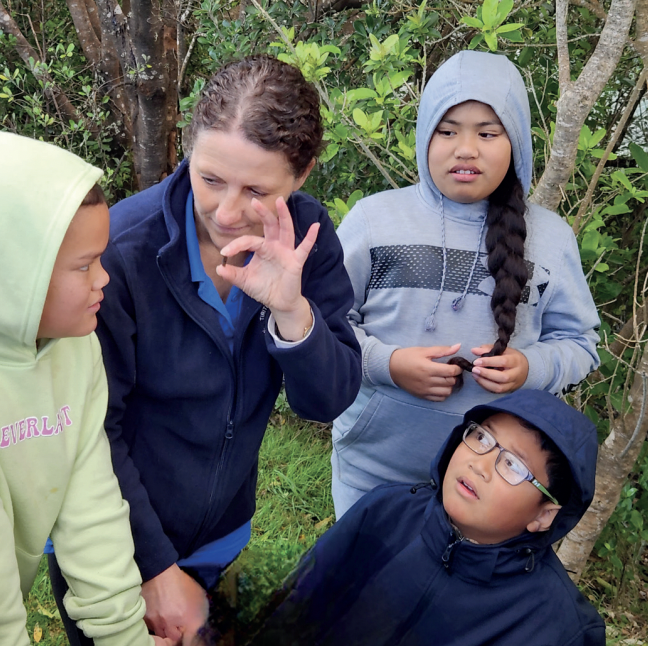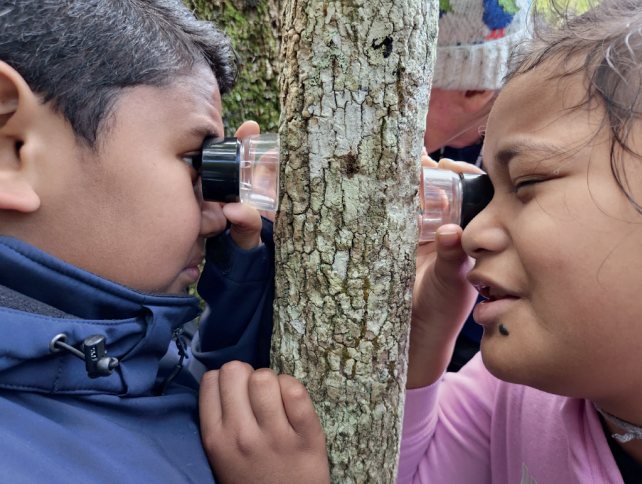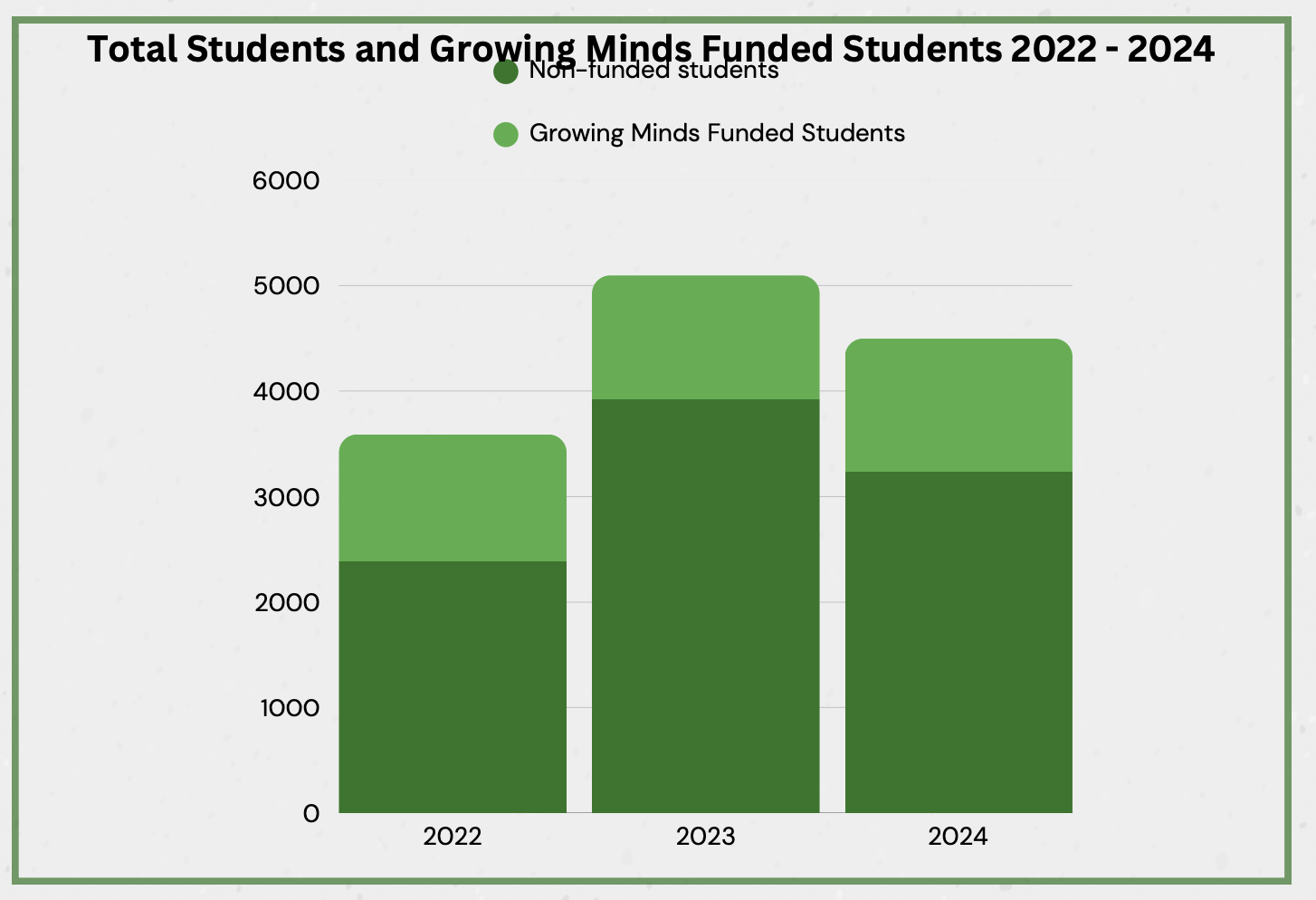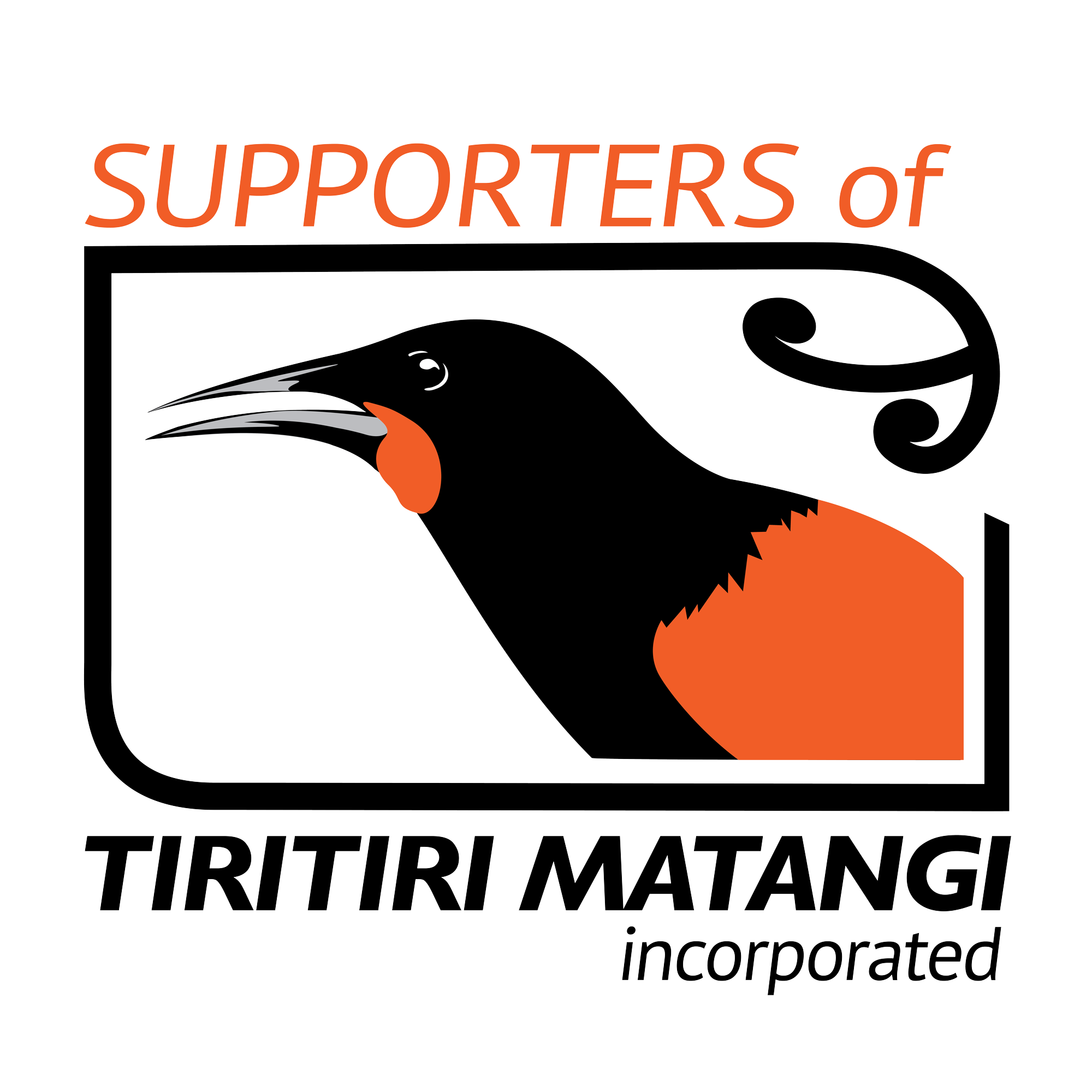From Tiritiri Matangi to Ōtāhuhu:Inspiring environmental action in our school
Author: Josh Burrowes, Associate Principal at Ōtāhuhu Primary, shares the school's journey of environmental learning with Dawn Chorus.From the Supporters of Tiritiri Matangi Archives: Bulletin 139, November 2024
Ōtāhuhu Primary School has been undergoing a shift in our approach to inquiry learning over the past two years.
Last year, we made a plan to investigate the “three B’s” in our school environment – birds, bugs and bees – to understand biodiversity and the relationship between our physical environment and its impact on how the three B’s survive. Given the industrial nature of our school’s surrounding neighbourhood, we wanted to ensure that our students are exposed to a rich and biodiverse ecosystem so that they can better understand these concepts.
We were connected with Tiritiri Matangi and applied for the Growing Minds Programme, which has allowed us to see our vision come to life. Throughout 2024, with the support of the funding we received through Growing Minds, we have been able to take almost all of our Year 4-6 students across to Tiritiri Matangi Island (almost 300 students) to experience this once-in-a-lifetime opportunity.
The journey began during the Term 1 school break when we took our teachers across to Tiritiri Matangi to get firsthand experience on the island, with guided walks from some of the island’s educators. This was an amazing opportunity for our teachers to find their feet and understand all of the learning that can take place on the island, as well as understand the demands of taking large groups of students across. Growing Minds provided us with additional resources to make this trip achievable, which we were very thankful for. This pre-visit was incredibly important for our teachers to gain the confidence they needed to undertake this experience. We highly recommend that any new schools looking at going to Tiritiri Matangi take this step as well.
Over Term 2, we had planned to take 13 classes to the island in all. Most made it without trouble, some trips were postponed due to high winds and storms, and one trip got as far as Gulf Harbour before having to turn back due to much worse than anticipated sea conditions. This was an unfortunate experience for those two classes as they battled large waves, a rocky boat, and a lot of upset stomachs. Their trip has been rescheduled, but a nervous wait looms for those children and their parents.
For the trips that have gone ahead, all we can say is that we are so glad we took the risk and put months of planning into making them happen. These experiences have been invaluable not only for our students, who have made incredible connections to their learning experiences in school, but for the whānau that have come along as well. As you can imagine, this has been a very popular experience for our community, and we have done what we can as a school to get as many people across to the island as possible. Our principal has shown great leadership and commitment to the programme, ensuring that no one misses out, despite the costs involved. We know that we are fortunate to be able to visit Tiritiri Matangi Island, and many of our students and their families will not get this opportunity again. It is worth it!
Our teachers and students have been inspired by what they have seen. Tiritiri Matangi is so full of life, and to know that within our lifetimes (at least for many of our teaching staff) it was a farm riddled with rats and other pests, that has been transformed into this brilliant sanctuary, it gives us hope as to how we can impact our local environment. Our students now have the challenge of taking some of the magic they experienced on Tiritiri Matangi and putting it into practice as they apply their new knowledge back in Ōtāhuhu. Gardens, tree planting, constructing bee sanctuaries, and bug hotels are all ideas coming to life as we take action this term at school.
We are so grateful for the support we have received from Growing Minds. The educators and volunteers at Tiritiri Matangi have also been incredible on every trip. This is an experience that every Auckland student should get to experience at some point in their lives, particularly with all that we face in our changing climate, and we hope that more opportunities will be created in the future.
From everyone at Otāhuhu Primary, we say THANK YOU to everyone who contributes their time, knowledge and resources to these programmes.


Sara Dean, lead educator shares:
“I’m looking at the bird with a blue chin” – The moment a boy from Otahuhu Primary became enthralled by the wonder of the kōkako. While his classmates enjoyed lunch in the courtyard, I noticed the boy standing alone, his gaze fixed intently. I asked him what he was doing. “I’m looking at the bird with the blue chin,” he replied. Dave was completely captivated by the kōkako feeding on a coprosma just a couple of meters away, oblivious to everything else around him. The experience was incredibly special to him, being so close to such a beautiful bird and even more so when he learnt how rare and endangered it is. Later in the afternoon, he shared his excitement with his classmates, recounting the story of how he had spotted the beautiful, rare bird and had a unique moment with it, undistracted by anything else. It was a touching scene, clearly a transformative experience for this young student.
Tiritiri Matangi’s island ‘classroom’ offers school students a powerful opportunity to explore ecological processes, understand the impact of human activity on the environment, and discover the richness of Aotearoa New Zealand’s unique biodiversity.
Our education programme delivers a range of hands-on, experiential learning experiences on the motu. By engaging with the outcomes of this successful community-led restoration project, students are inspired to become kaitiakitanga in their own local environments.
We believe every student in Auckland deserves the chance to experience Tiritiri Matangi. Thanks to the generous support of the Joyce Fisher Charitable Trust, the Growing Minds programme was launched in 2012. This initiative continues to break down socio-economic barriers, enabling thousands of students to experience conservation in action and learn first-hand about our native and threatened species. Growing Minds covers the cost of ferry travel with Explore and provides access to our education programme free of charge.


“None of this would have been possible without the Growing Minds Programme. Their commitment to enriching educational experiences has opened doors for our students, empowering them to make a positive impact on their community and the world.”
Christ the King School teacher
“Students reported feeling inspired by the conservation work happening on Tiritiri Matangi and have proposed a number of project ideas for our kura to follow in the footsteps of the motu and its incredible volunteers.”
Ardmore teacher
“The trip itself was nothing short of extraordinary. Tiritiri Matangi provided our students with a unique environment to explore and learn about New Zealand’s rich biodiversity. The educational activities organized on the island, including guided walks and interactive learning sessions about plants, trees, and wildlife, were both engaging and informative. I want to extend our heartfelt appreciation to all those involved for their unwavering support and commitment to providing such a great experience. The impact of this trip on our students’ learning and appreciation for the natural world cannot be overstated.”
Nathalie Irvine, Everglade Primary School
Student Feedback
“It was nice to have places to experience a sanctuary firsthand. I got the feel for nature and why we need to protect it. When you experience it, it makes you want to protect it.”
“I learnt about the power of community and perseverance, and also about the importance of translocation for preserving New Zealand’s biodiversity.”
“I will start doing the same things that the staff did in the island because I want my place to be more clean like an island.”
“The highlight of the day was the people that made our day so much more special and memorable. Of course the knowledge we learned from them, the history and the theory of Tiritiri Island.”
